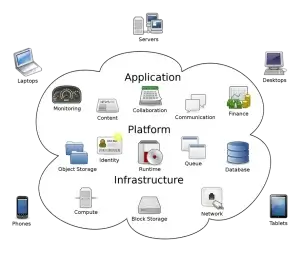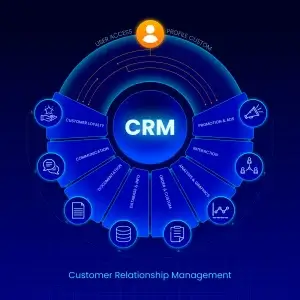The future of ERP trends is an exciting one. In the past, many companies have relied on traditional solutions to power their business processes. But as technology evolves and becomes more integrated into our lives, businesses are looking for ways to streamline their operations and take advantage of the latest innovations. In fact, a recent Forbes study found that 90 percent of companies use enterprise resource planning (ERP) software to manage their data across departments and make better business decisions.
As technology advances, there are a number of new trends that are anticipated for the year 2022. In this blog, we at Rockford Computers, with immense experience backing our expertise, have developed a whole list of ERP Trends, that you must consider.
- Internet of Things (IoT):
IoT is a core component of ERP solutions because it enables the collection of data from machines and sensors in real time. ERP vendors have been working on IoT solutions for years. Now they’re integrating those capabilities into their core offerings and expanding them beyond machine data to include supply chain data as well as company-specific data from mobile apps and other sources. IoT is the next step in ERP development as it integrates technology into machinery and manufacturing processes to improve productivity and efficiency. The future of ERP trends is moving toward a unified system that uses AI to automate processes and predictions based on real-time data collected from sensors throughout your facility. The result is better decision making that improves efficiency and productivity while reducing operating costs.
- Personalized Solutions:
ERP providers are beginning to offer configurable ERP solutions. The ability to configure your own solution allows users to pick and choose features that meet their specific needs without having to spend time trying to understand how everything works together. This will allow smaller companies to take advantage of enterprise-level technology without having to invest in all of the tools they don’t need or want.
- E-Commerce and Digital Transformation:
The boom in eCommerce boom and direct-to-consumer trends has led to blurring of lines between traditional retailers, distributors and manufacturers. While the manufacturers and distributors will be focused on investing into ecommerce, it is predicted that retailers and distributors will focus on manufacturing products. This in turn increases the complexity of every business which would therefore need ERP systems that have support for multiple business models. With the increase in eCommerce, eCommerce integration has become vital for ERP’s. Similarly, digital transformation is the future for all companies and therefore it is a vital feature for every ERP system.
- Mobile Integration:
In 2022, ERP systems are undergoing a major transformation as they move from static applications to more dynamic platforms that can adapt to changes in business needs. ERP vendors are adding features like mobile apps and analytics platforms that allow businesses to monitor their operations in real time and make decisions based on real-time data rather than after-the-fact reports. This is particularly relevant for manufacturers who need real-time visibility into production lines so they can address issues before they become major problems or severe losses of revenue due to production downtimes or product recalls.
With so many new trends affecting ERP systems in 2022, it might get difficult to choose the right ERP software for your company. At Rockford Computers, we can help determine the right ERP system for your organization, which will yield desired results.



